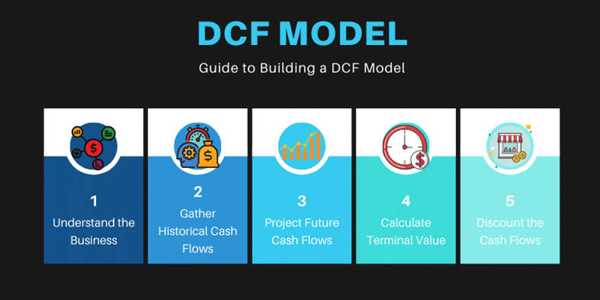Why Subscription-Based Business Models Are Profitable In Stocks
The business world has significantly shifted over the past decade, with companies increasingly adopting subscription-based models. Whether streaming services like Netflix, software platforms like Adobe, or meal kit services like HelloFresh, the subscription model has taken various industries by storm. But why are these companies, built around recurring payments, often seen as profitable investments in the stock market? Let's dive into the details.

Steady Revenue Streams
One of the main reasons subscription-based businesses are attractive in the stock market is their ability to generate steady and predictable revenue. Unlike traditional businesses that rely on one-time sales, subscription companies benefit from recurring payments. This consistent flow of income allows companies to plan better, invest in growth, and maintain cash flow even in challenging economic times.
For investors, this translates to reduced risk. Predictable revenue means these companies are less likely to suffer from sudden financial shocks, making them a safer bet. When companies can accurately forecast their income, they're better positioned to meet earnings expectations, leading to a more stable stock price.
Higher Customer Lifetime Value
In a subscription model, the focus shifts from making a single sale to retaining customers over the long term. This retention-centric approach often leads to a higher Customer Lifetime Value (CLTV). CLTV is the total income a company anticipates earning from a customer throughout their relationship.
Because subscription businesses focus on long-term relationships, they often invest heavily in customer satisfaction, offering ongoing value to ensure users stick around. The longer a customer stays subscribed, the more profitable the business becomes. This model particularly appeals to investors because it emphasizes long-term growth rather than short-term gains.
Lower Customer Acquisition Costs Over Time
While acquiring customers can be expensive initially, the subscription model allows businesses to spread these costs over the length of the customer relationship. In traditional business models, companies must continuously spend on marketing to attract new customers and keep sales up. However, with subscriptions, once a customer is acquired, the cost to maintain them is generally lower than the cost of acquiring new ones.
As the customer base grows and stabilizes, businesses can see their customer acquisition costs (CAC) drop relative to their revenue. This creates a more efficient operation over time, which investors look for when evaluating a company's long-term potential.
Scalability And Growth Potential
Subscription-based businesses are often built on digital platforms, making them more scalable. Take a software-as-a-service (SaaS) company, for instance. Once the software is developed, it can be distributed to unlimited customers with minimal additional costs. This scalability enables rapid growth, which is crucial in boosting stock prices.
Moreover, the subscription model allows companies to innovate and add new features without requiring customers to purchase more. Regular updates or additional services can be rolled out to existing customers, adding value and encouraging long-term loyalty. This ability to scale and continuously offer value makes these companies attractive to investors.
Recurring Revenue Models Are Easier To Value
For investors, one of the challenges in stock selection is valuing a company accurately. Companies with erratic revenue streams are more challenging to predict and riskier investments. With their recurring revenue models, subscription-based companies provide more clarity and stability, making them easier to value.

Analysts can use models like discounted cash flow (DCF) when a company's revenue is predictable to estimate its value more effectively. This transparency reduces uncertainty and can lead to a higher valuation, benefiting the company and its shareholders.
Market Leadership And Brand Loyalty
Subscription models often lead to strong brand loyalty, as customers who subscribe to a service will likely stick with it if it meets their needs. This loyalty can create market leaders, particularly in industries with high switching costs (the costs associated with moving from one service to another).
For example, companies like Netflix have become synonymous with online content consumption in the streaming industry. Their dominant market position makes it difficult for new entrants to gain significant market share. When a company holds a leadership position in its market, it can command premium pricing and maintain higher profit margins, which are attractive to investors.
Flexibility And Adaptability
Subscription-based businesses are naturally flexible, making adjusting to shifts in customer behaviour, market trends, and economic conditions easier than traditional businesses. Because these companies have direct and ongoing customer relationships, they can quickly gather feedback and adjust.
For instance, a subscription service might notice a decline in customer engagement and respond by tweaking its offerings or pricing models. This adaptability is crucial in today's fast-paced business environment, where consumer preferences can shift rapidly. Companies that adapt swiftly are more likely to keep their customers and revenue stable, giving investors confidence.
Cost Management And Profitability
In subscription-based models, cost management is more straightforward because expenses are often tied to the number of subscribers. For example, a company providing a digital service might have fixed costs regarding technology and infrastructure, but the marginal cost of adding a new subscriber is relatively low.
This structure allows companies to maintain or even improve profitability as they scale. As more customers subscribe, the per-user cost decreases, leading to higher profit margins. This potential for increased profitability over time is a significant draw for investors.
Conclusion
Subscription-based business models are profitable and resilient, making them attractive investments. They offer steady revenue, high customer lifetime value, and scalability, contributing to financial stability and growth. These companies are more accessible to value, adapt well to market changes, and often lead their industries.
Subscription businesses are a strong choice for investors seeking growth and stability. They maintain long-term customer relationships, manage costs efficiently, and leverage data for improvement. This makes them well-positioned to thrive in various economic conditions, providing profitable opportunities for stock investors.





